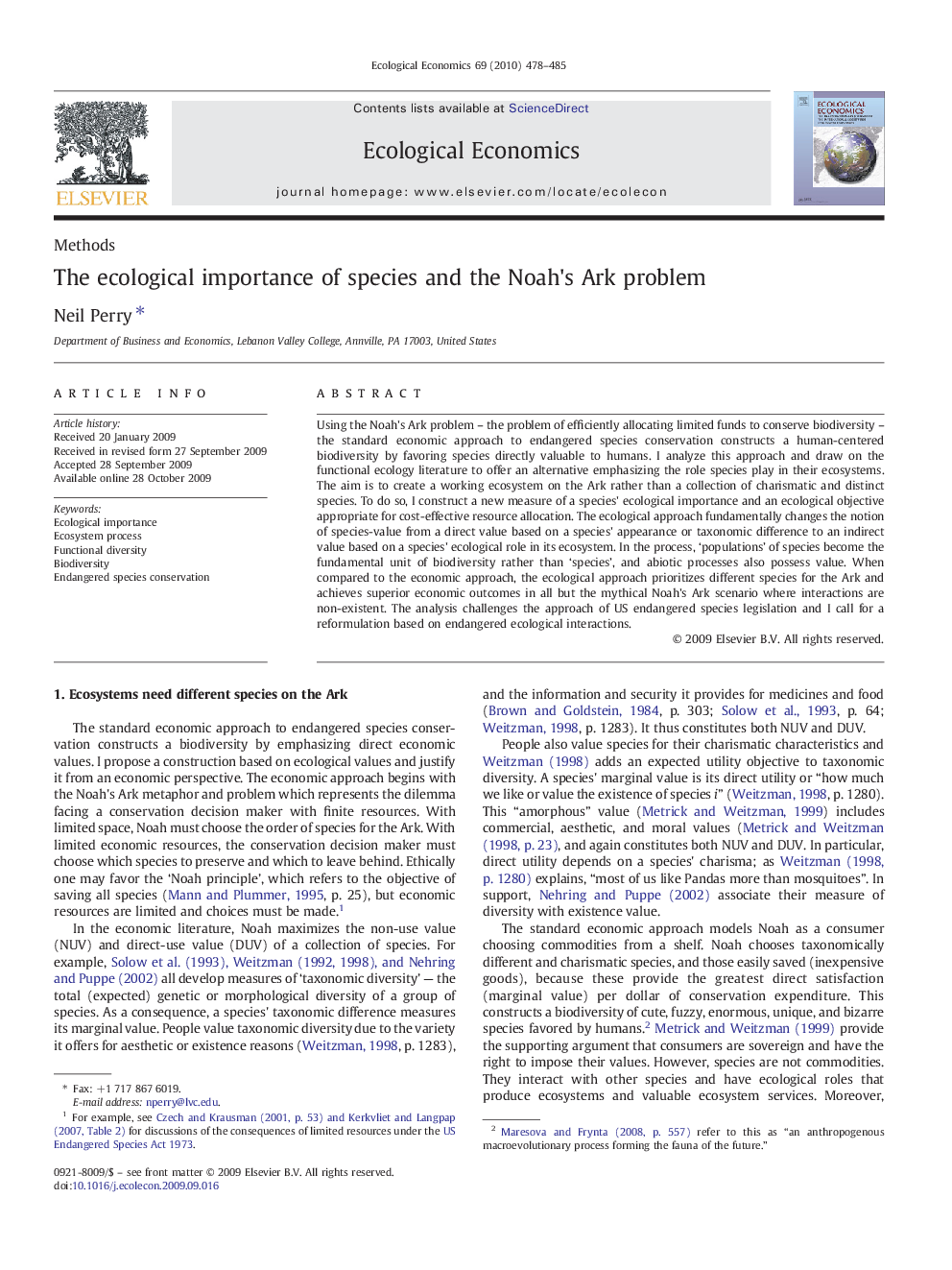| Article ID | Journal | Published Year | Pages | File Type |
|---|---|---|---|---|
| 5051115 | Ecological Economics | 2010 | 8 Pages |
Using the Noah's Ark problem - the problem of efficiently allocating limited funds to conserve biodiversity - the standard economic approach to endangered species conservation constructs a human-centered biodiversity by favoring species directly valuable to humans. I analyze this approach and draw on the functional ecology literature to offer an alternative emphasizing the role species play in their ecosystems. The aim is to create a working ecosystem on the Ark rather than a collection of charismatic and distinct species. To do so, I construct a new measure of a species' ecological importance and an ecological objective appropriate for cost-effective resource allocation. The ecological approach fundamentally changes the notion of species-value from a direct value based on a species' appearance or taxonomic difference to an indirect value based on a species' ecological role in its ecosystem. In the process, 'populations' of species become the fundamental unit of biodiversity rather than 'species', and abiotic processes also possess value. When compared to the economic approach, the ecological approach prioritizes different species for the Ark and achieves superior economic outcomes in all but the mythical Noah's Ark scenario where interactions are non-existent. The analysis challenges the approach of US endangered species legislation and I call for a reformulation based on endangered ecological interactions.
